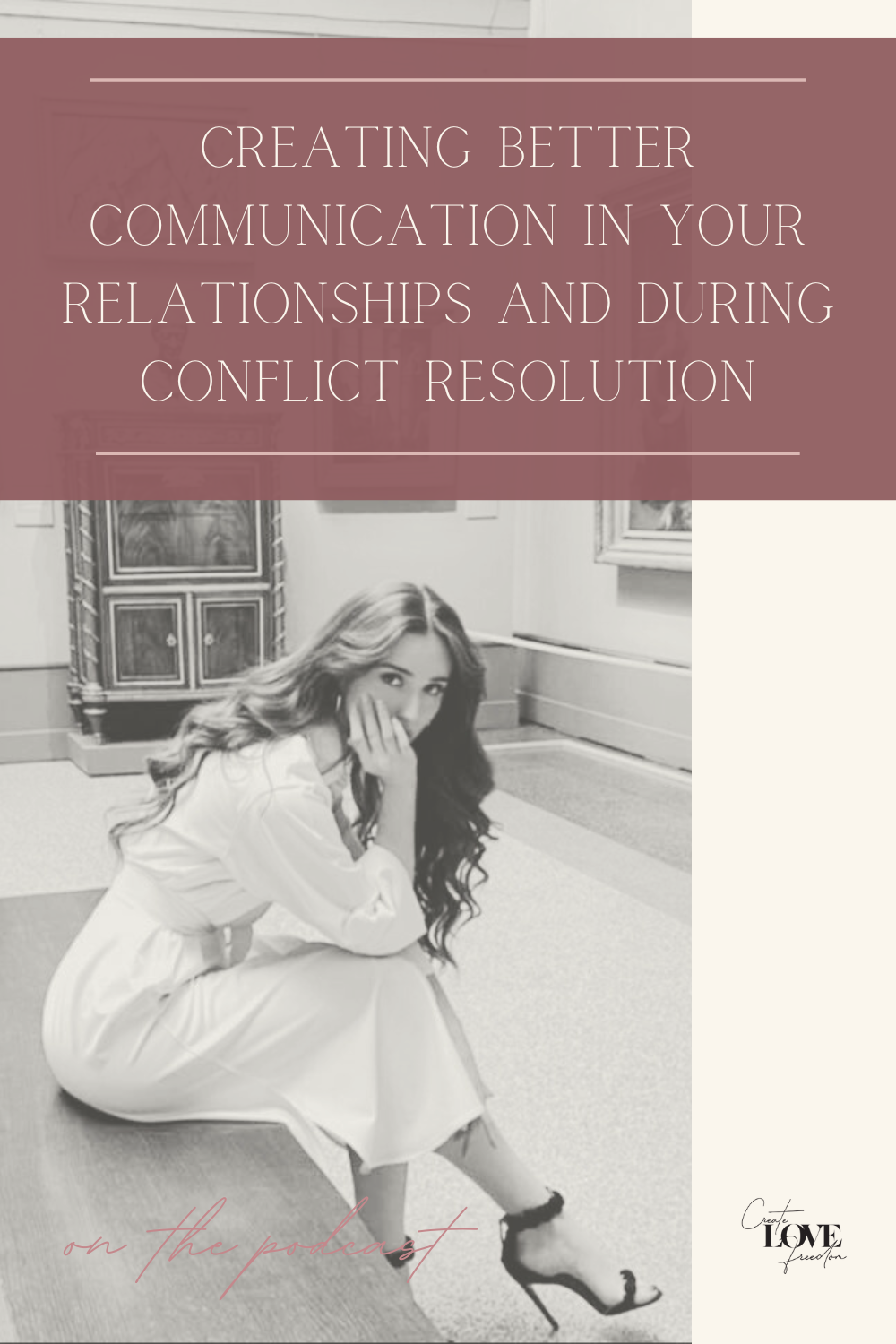
Creating Better Communication in Your Relationships and During Conflict Resolution
In this episode, we discuss communication in our relationships, the signs to pay attention to that our communication could be better between ourselves and our partners, and rules to help us navigate conflict in our relationships.
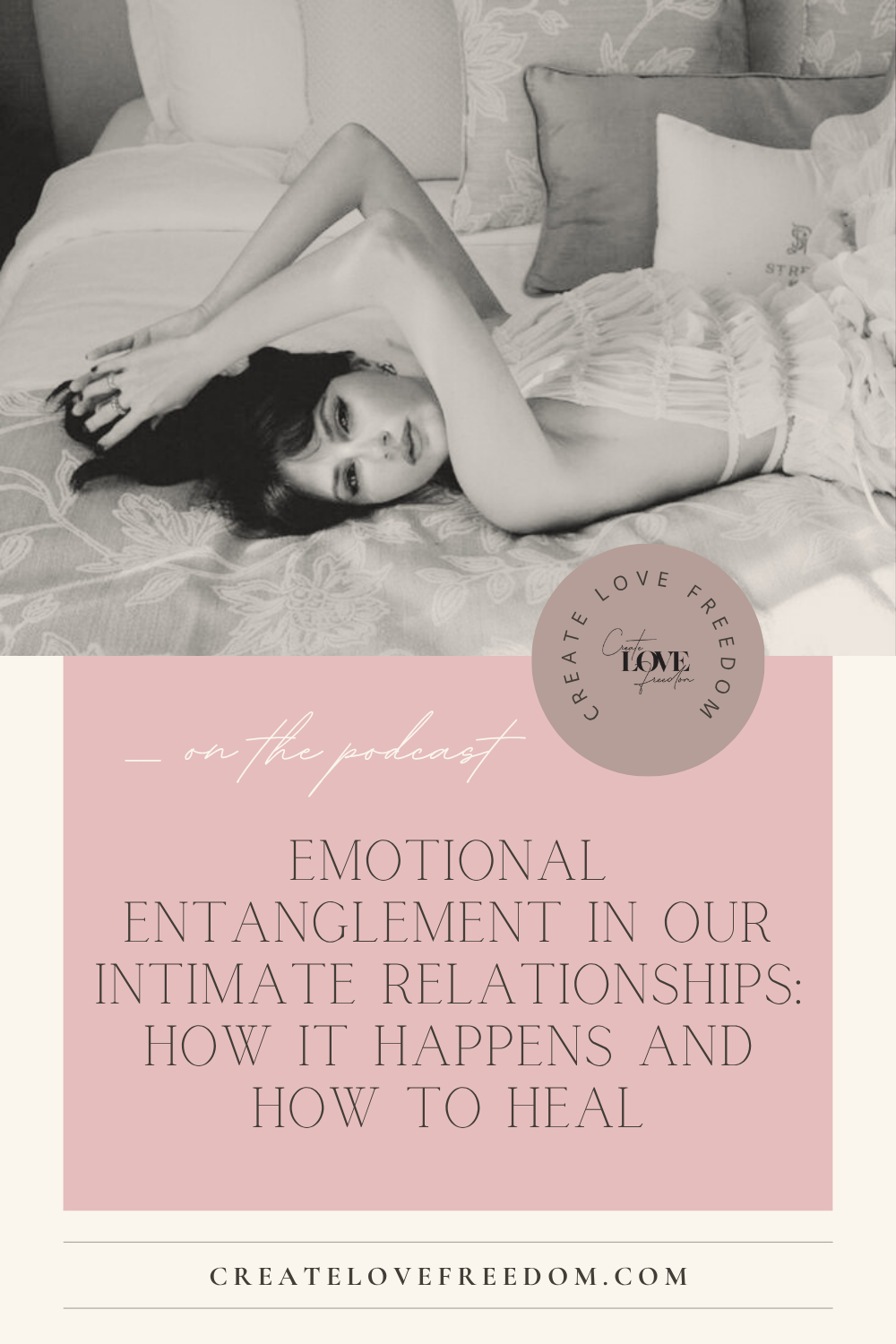
Emotional Entanglement in Our Intimate Relationships: How It Happens and How to Heal
Emotional entanglement is when two individuals’ emotional states, identities, or wounds become enmeshed to the point where boundaries blur or dissolve. This is not emotional intimacy—it’s emotional enmeshment masquerading as connection.
In this episode we discuss emotional entanglement, their connection to limerence, love addiction, codependent relationships and enmeshment.

Living Form A Place Of Scarcity Rather Than Abundance: How To Shift Your Mindset On Your Healing Journey
In this episode, we discuss the aspects of the feminine who feels like she is living in a place of scarcity rather than abundance when she is working through her childhood wounds and trauma, when she is healing from past relationship wounds and pain, and when she is confronting patriarchy and misogyny in her community, in society, and in the world. We also look at how she can heal by being connect to both her light and dark feminine energy, and how she can use the goddess Persephone, the sigma female archetype, and the Shadow Empress archetype to heal and change the world.
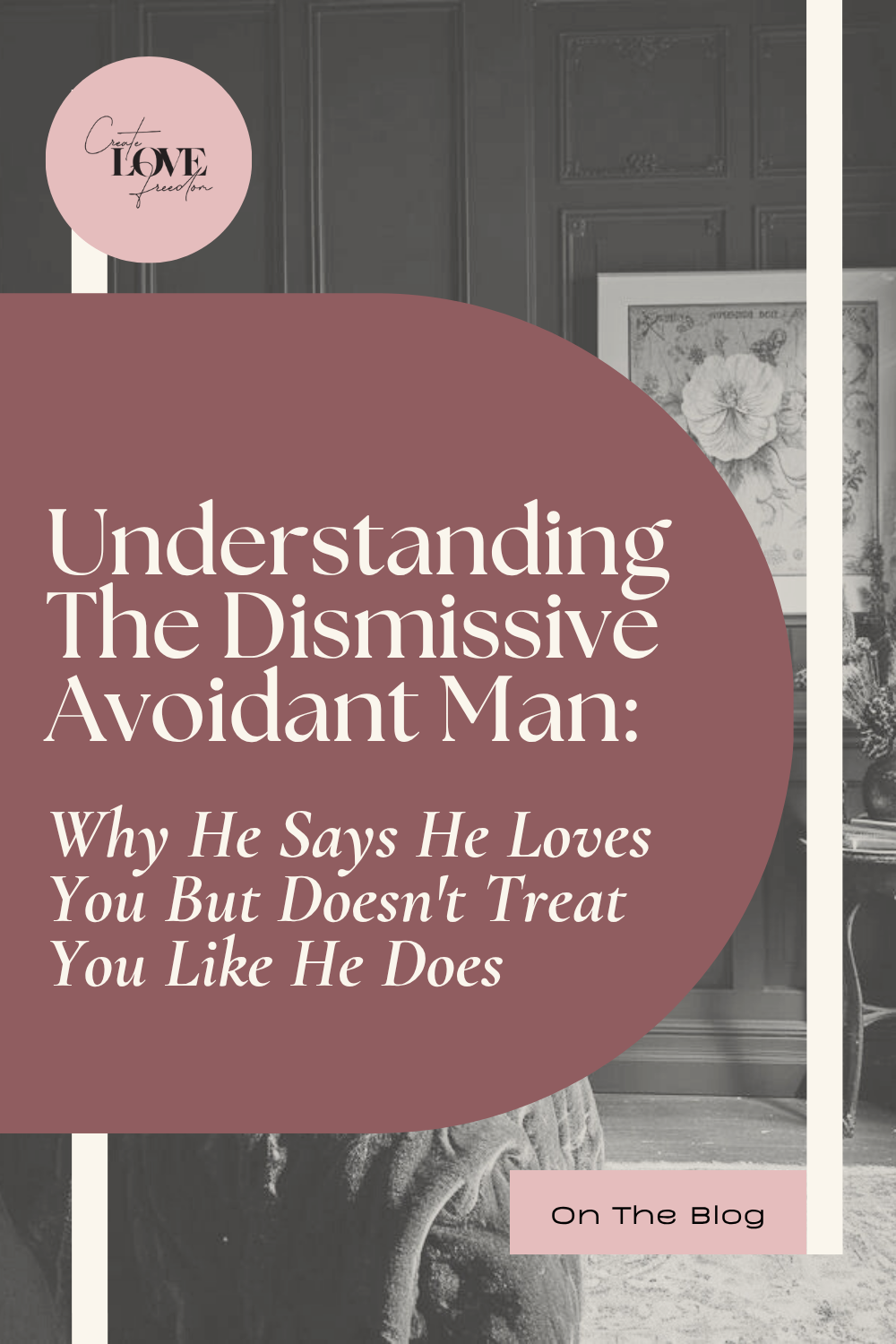
Understanding The Dismissive Avoidant Man: Why He Says He Loves You But Doesn't Treat You Like He Does
Romantic involvement with a dismissive‑avoidant (“DA”) partner can feel like a paradox: on one hand there’s warmth, charm, even deep declarations of care; on the other, a stubborn distance that makes you question whether that love is real. Underlying this pattern is a deeply ingrained survival strategy that takes root in early childhood. In this episode, we discuss deepening our understanding of the dismissive avoidant man.
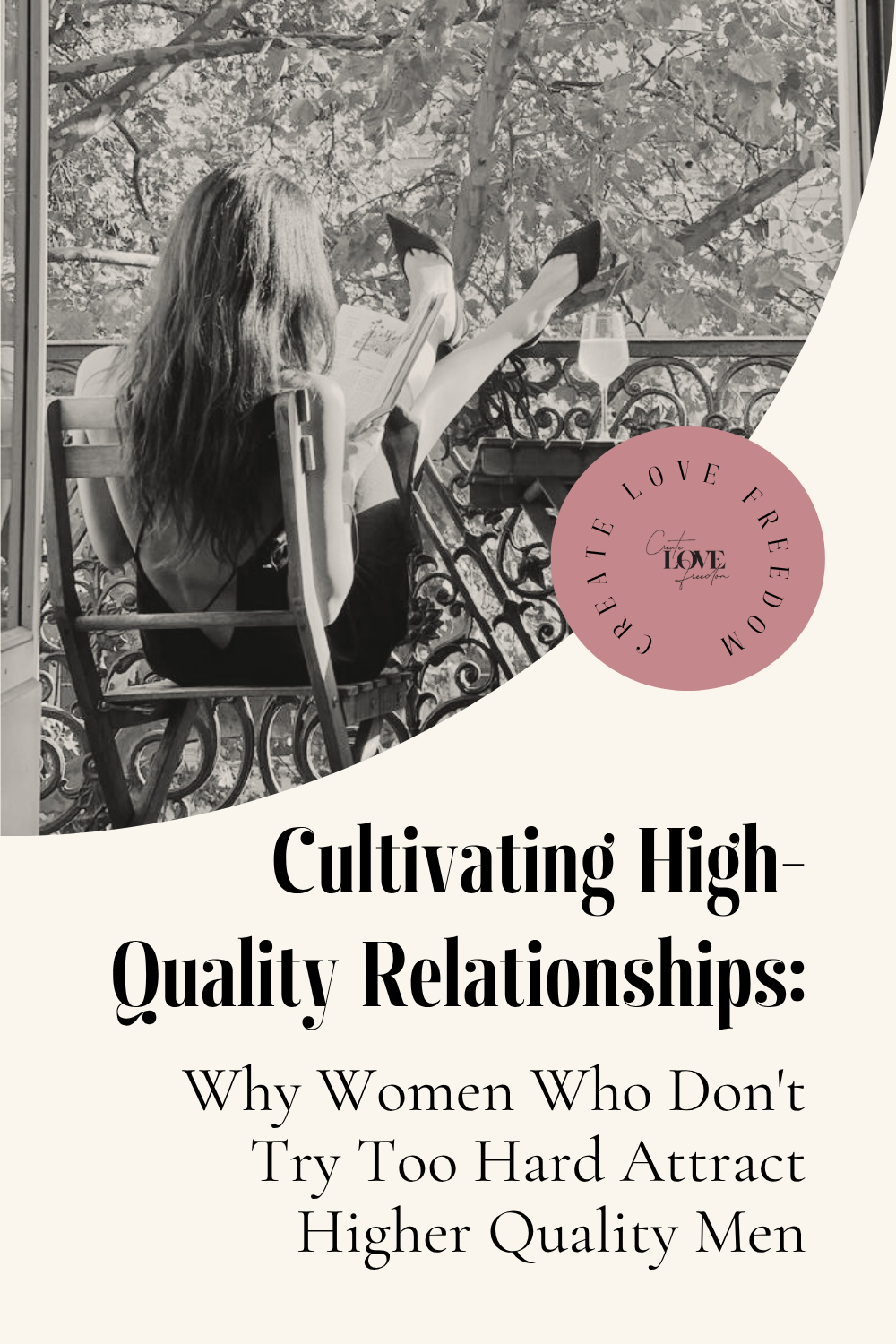
Cultivating High-Quality Relationships: Why Women Who Don't Try Too Hard Attract Higher Quality Men
In this episode we discuss why women who don't try too hard in their relationships attract higher quality men and how women can attract lifetime love.

The Three Enneagram Centers and Using the Enneagram Levels of Development in Your Relationships and Life
In this episode we discuss the three Enneagram Centers (Instinctual/Gut/Body, Feeling/Heart, and Thinking/Mind) and how these centers influence our emotional responses when we lose contact with our core self. We also discuss the Enneagram Levels of Development/Health to assess our current behaviors, attitudes, defenses, and motivations in our lives and our relationships.

Healing the Madona-Whore Wound Within the Feminine
In this episode, we continue our discussion of the Madona-Whore Complex and dive into a deep discussion on how the feminine can heal her experiences and psychological trauma related to being labeled the Modona or the Whore in her own life.
By unlearning the Madonna–Whore myth together, women reclaim their integrated selves and men learn to see them—and themselves—beyond reductive binaries. This shared healing is a crucial step toward dismantling the patriarchal scripts that keep us all smaller than we truly are.

Rejecting the Madonna-Whore Dichotomy: The Feminine Who Chooses Autonomy Over Conforming to Patriarchal Roles
As women, we have experienced the Madonna-Whore Complex and have been put into one or both of the categories with different men. In this episode, we discuss the women who choose neither path. We also discuss the correlation of the Madonna-Whore Complex with the dismantling of patriarchy, misogyny, and the sigma female archetype who does not allow herself to be cast in either of these roles and therefore can guide us on our journey of self-transformation and wholeness.

Power Imbalance in Relationships and the Importance of Letting Your Partner Influence You
In this episode we discuss power dynamics in intimate relationships, the importance of letting you partner influence you in order to create a healthy relationship dynamic, signs of an unhealthy power dynamic, and how to manage power dynamics in your relationships.
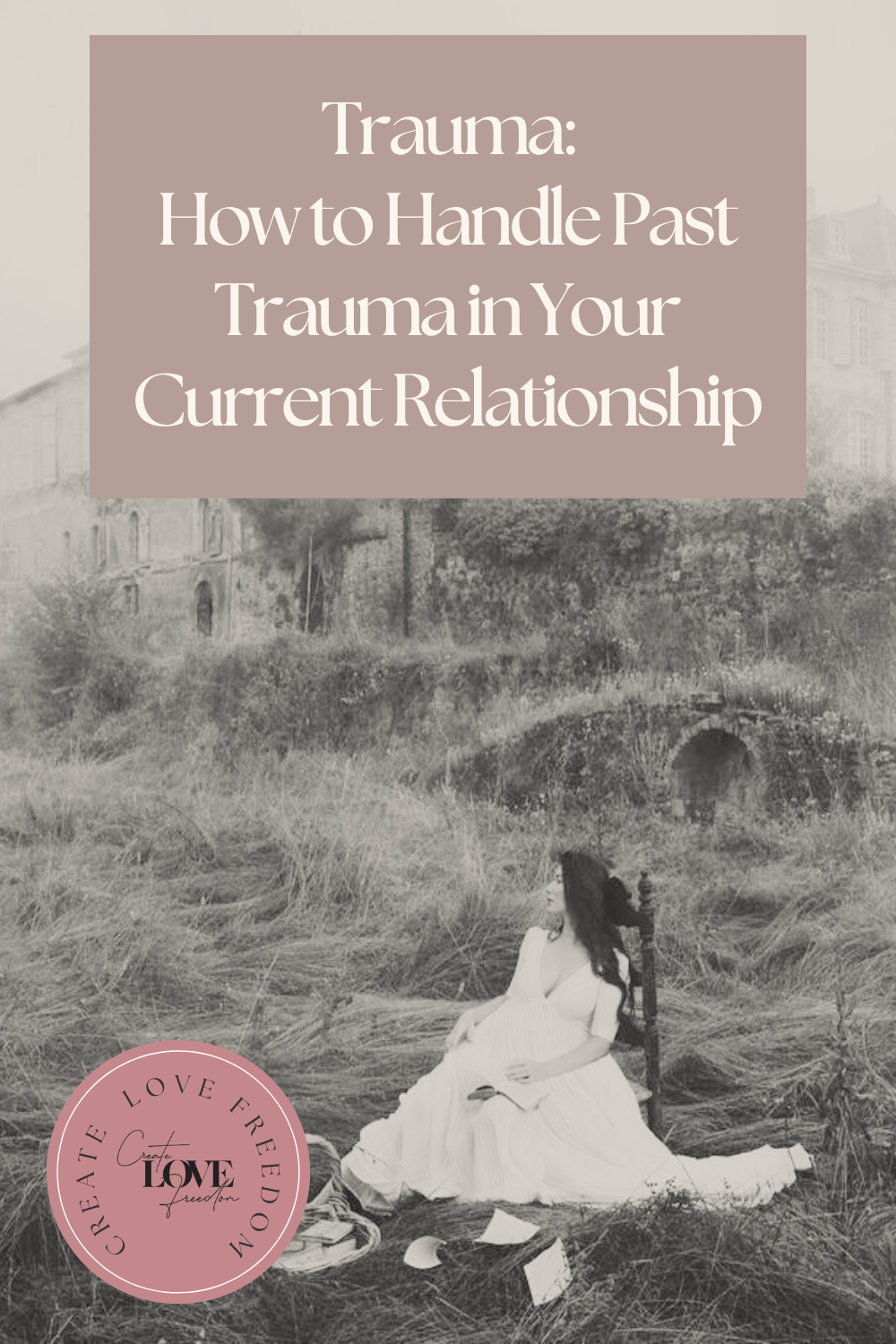
Trauma: It's Impact on Your Relationships and How to Handle Past Trauma in Your Current Relationship
In this episode, we discuss how trauma impacts our relationships - with our intimate partners, our families, our children, our friends, and our work relationships. We discuss the four types of trauma responses and how to handle our past trauma in our current relationships.
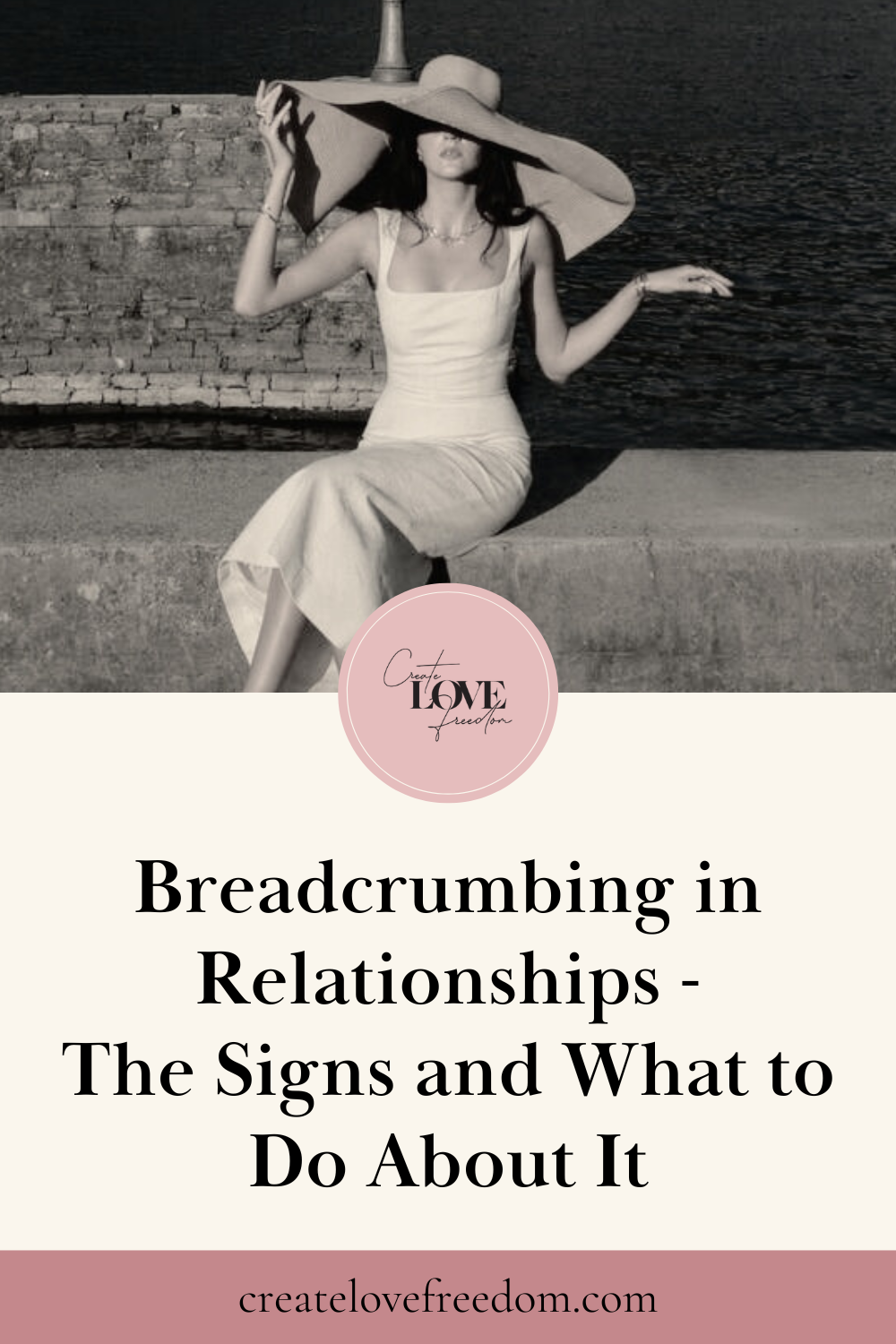
Breadcrumbing in Relationships - The Signs and What to Do About It
Breadcrumbing is a manipulative relational pattern where one person gives small, inconsistent, or vague signs of interest—just enough to keep the other person emotionally engaged, but never enough to create safety, clarity, or forward movement. It’s emotional baiting. It often masquerades as flirtation, mystery, or “being busy,” but its root is emotional unavailability or control.
In this episode we discuss the signs of breadcrumbing in relationships, why it is abusive, how to deal with it, and how to heal from it.
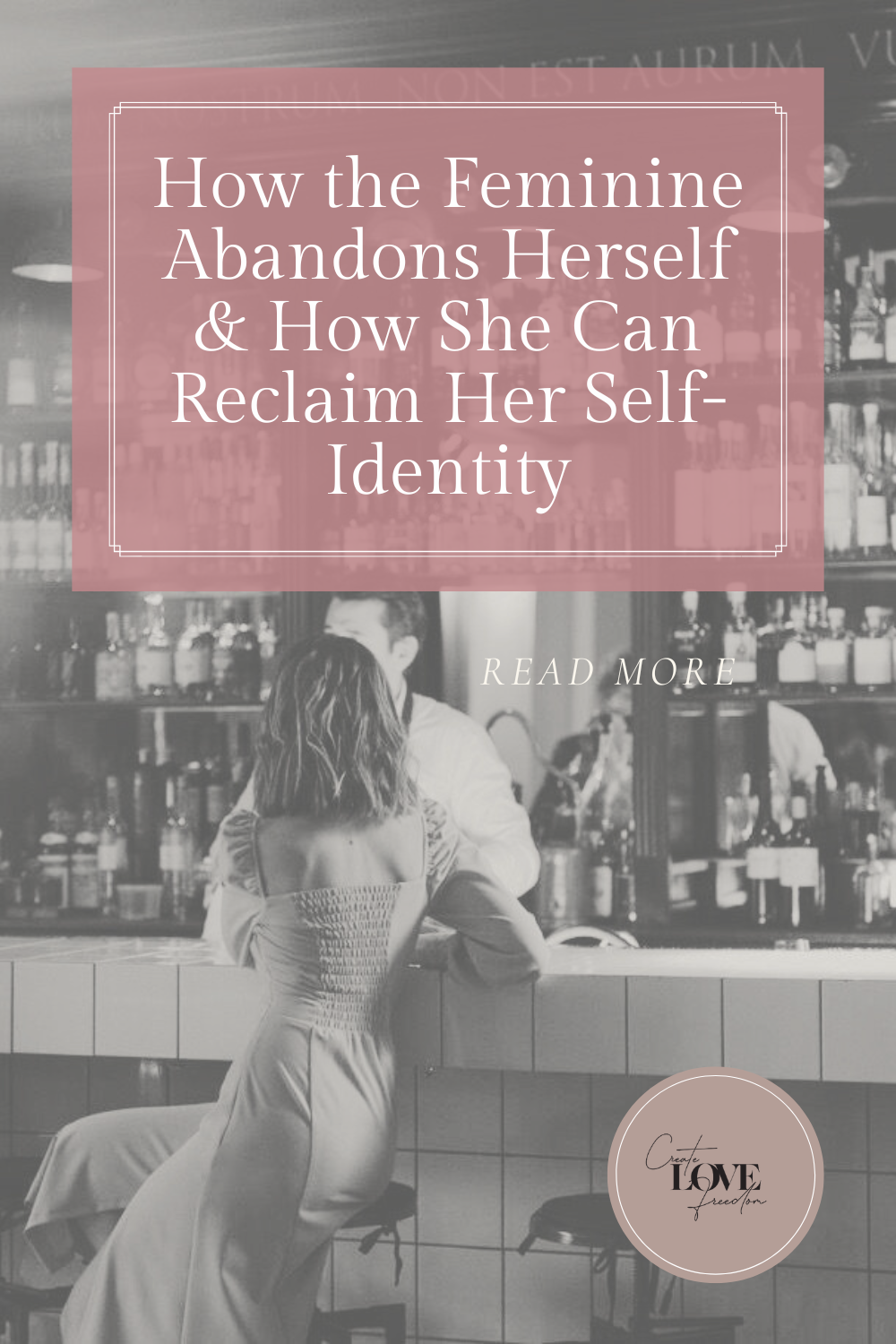
How the Feminine Abandons Herself: The Correlation Between Self-Abandonment, Childhood Wounds, and Insecure Attachment and How the Feminine Can Reclaim Her Self-Identity
Self‑abandonment is the habitual overlooking—or outright suppression—of one’s own needs, feelings, and boundaries in order to maintain connection with another. For a woman socialized into a “feminine” role—encouraged to be nurturing, adaptive, and relationship‑focused—self‑abandonment can become nearly automatic. In this episode, we discuss how this unfolds, how it ties back to childhood wounding and insecure attachment, and how it plays out in unhealthy partnerships.

Male Aggression and Assertiveness as Idealized Traits: How the Feminine Can Live More Harmoniously in a Masculine Dominated Society
In this episode, we discuss male aggression and assertiveness as idealized traits in American society, as well as how our masculine dominated society teaches male agency and selfishness through transgressing boundaries.
American society—through various institutions and cultural narratives—has often idealized aggressive and assertive behaviors in men, equating them with strength, leadership, and self-reliance. In this episode, we examine this issue, including the mechanisms through which male aggression, assertiveness, and forms of boundary-transgressing agency are taught and normalized.
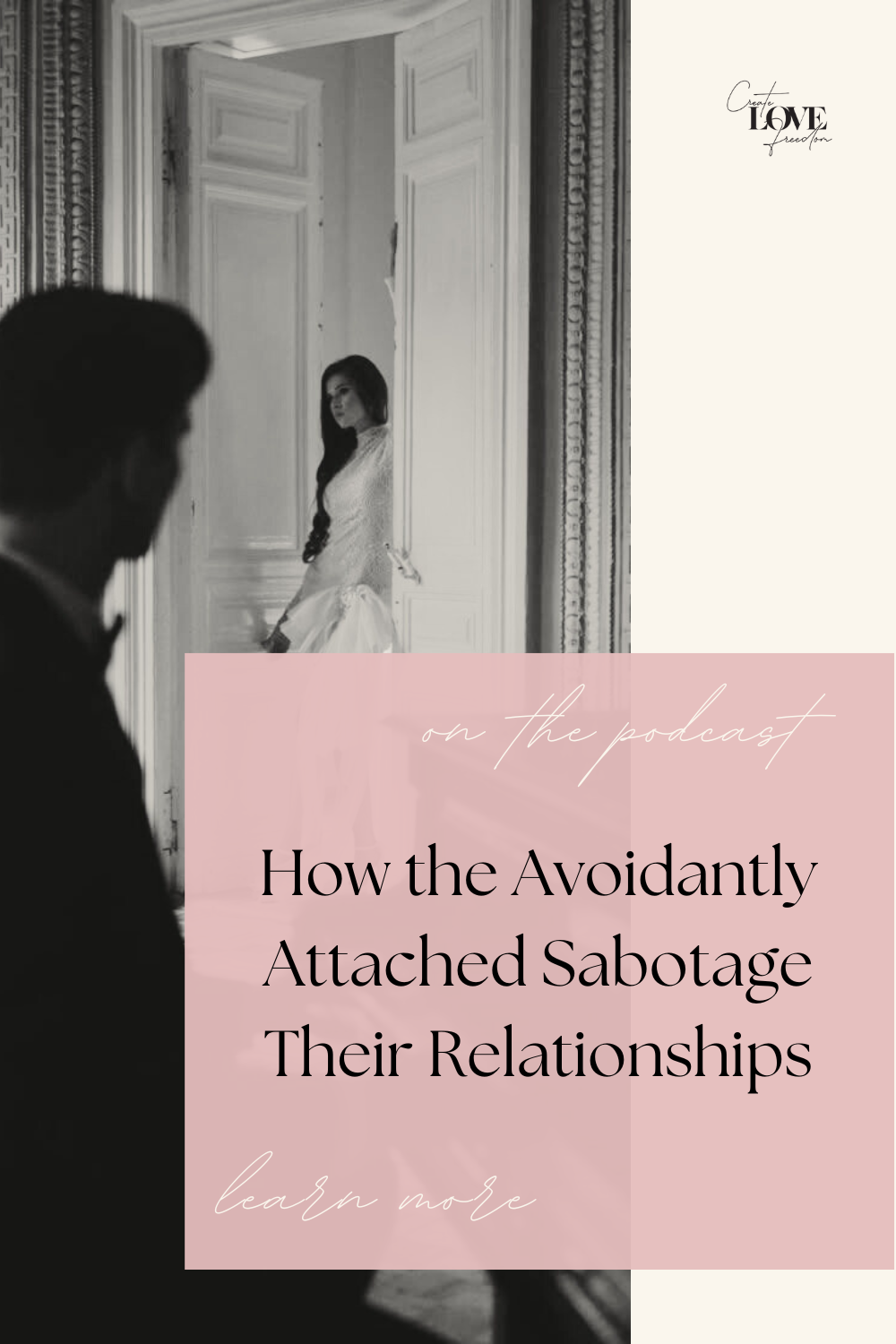
How the Avoidantly Attached Sabotage Their Relationships
In this episode we discuss Avoidant Attachment, how avoidant attachment occurs in childhood, the limiting beliefs that lead to sabotaging intimate relationships, and how the sabotage can present itself to the avoidant's partner.
Avoidantly attached individuals sabotage their relationships not out of malice—but out of fear. Their core wound is the fear of engulfment, loss of autonomy, and the vulnerability required for true intimacy. Deep down, avoidants want love and connection, but they’ve learned that closeness is unsafe, overwhelming, or threatening to their independence. So, they protect themselves by pushing others away—often without realizing it.
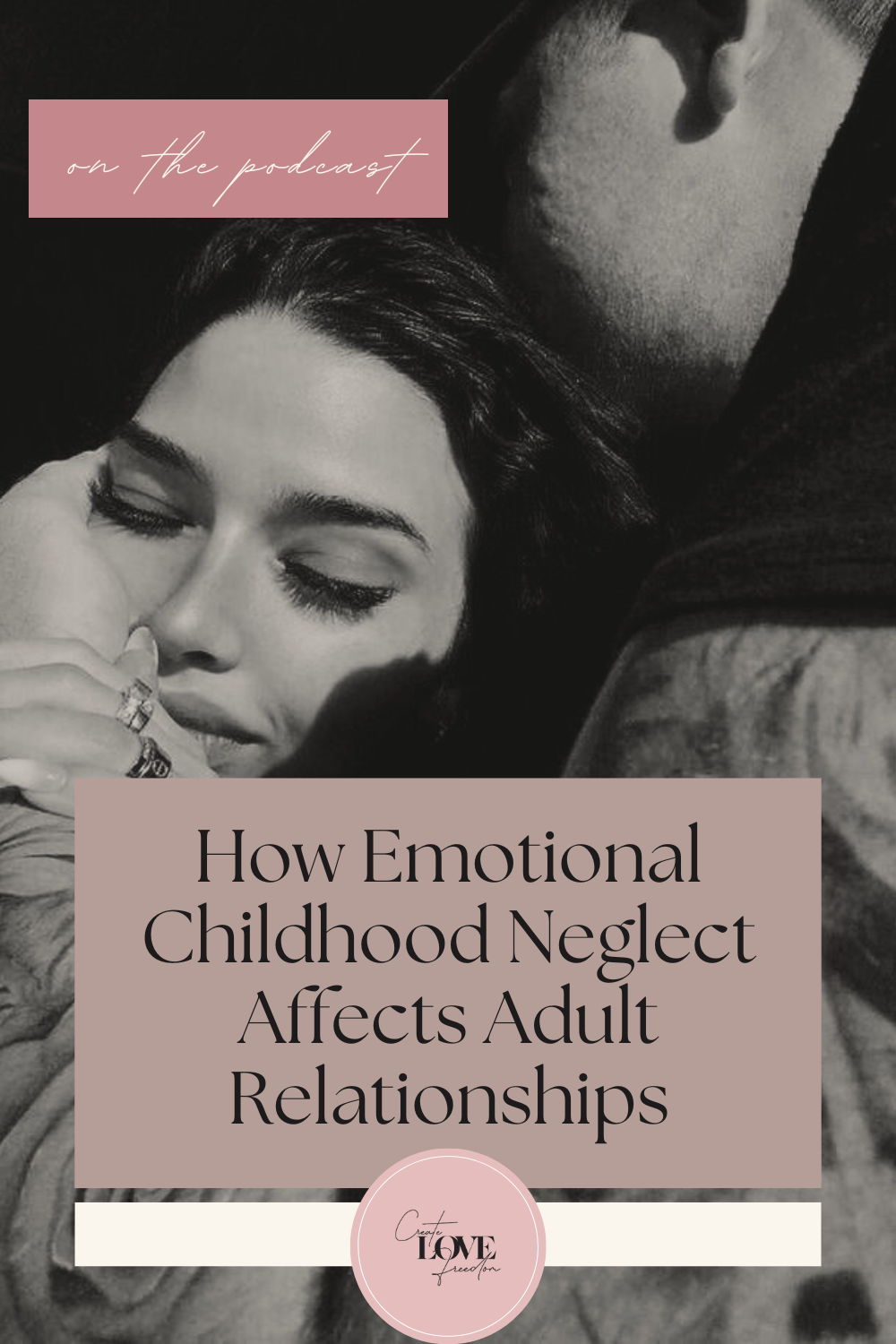
How Emotional Childhood Neglect Affects Adult Relationships
In this episode, we discuss Emotional Childhood Neglect, how it can show up in our adult relationships, and how emotional childhood neglect affects us throughout our lives.
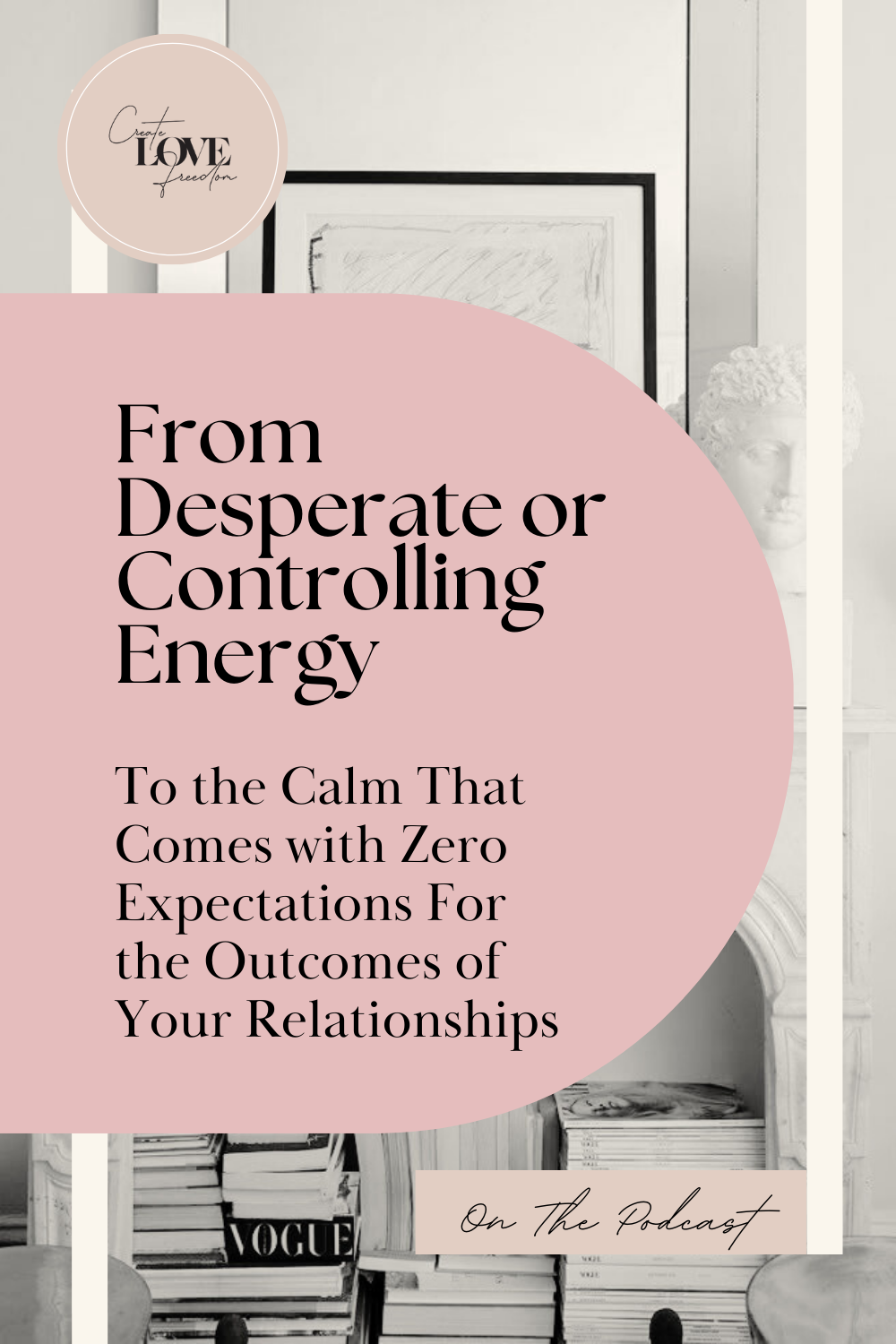
From Desperate or Controlling Energy to the Calm That Comes with Zero Expectations For the Outcomes of Your Relationships
In this episode, we discuss how to have better relationships and dating experiences by having zero expectations for the outcomes of our relationships.

The Difference Between Being Emotionally Needed Versus Emotionally Loved In A Relationship
In this episode, we discuss the difference between being emotionally needed versus emotionally loved in a relationship, as well as the cost of being emotionally needed versus emotionally loved for a woman in romantic relationships.
The distinction between being “emotionally needed” versus being “emotionally loved” touches on deep aspects of interpersonal dynamics, self-worth, and personal autonomy. Although both roles can be intertwined in relationships, they carry different emotional weights, implications, and potential costs—especially for women who might often face societal pressures and expectations in their relational roles.

Self-Sovereignty, Transformation and the Reclamation of Personal Power
In this episode, we look at the correlations between Persephone and the Shadow Empress feminine archetype and their connection to duality, transformation, and the reclamation of feminine power. Both figures challenge traditional dichotomies, urging an embrace of the full spectrum of the feminine experience—from the light of creation to the dark of transformation. In doing so, they provide a compelling model for integrating all aspects of the feminine self in our lives.

When the Feminine Lowers Her Standards for a Man: How to Attract Respect and Exceptional Relationships
In this episode we discuss the feminine, lowering our standards, and attracting a high vibrational man.
When a woman lowers her standards for a man, she doesn't just make a poor romantic choice—she sends a vibrational message to the world and to herself of self-abandonment.
The sovereign masculine is not scared by the feminine's standards. He is activated by them. If a man is triggered by the feminine being ‘too much’—he’s simply not her match. Standards protect her softness. They guard her sacred.

Using the Law of Detachment For Feminine Healing, Decentering Men, and Healing Insecure Attachment to Become Your Highest Self
In this episode, we discuss the law of detachment, the law of attachment, healing inner wounds using detachment, and how the feminine can transform her relationships with men using sacred feminine practices and decentering men.
By embracing both sacred feminine practices and the law of detachment, a feminine woman can create a life rooted in self-love, authenticity, and healthy, empowering connections—whether in solitude or with a partner.





